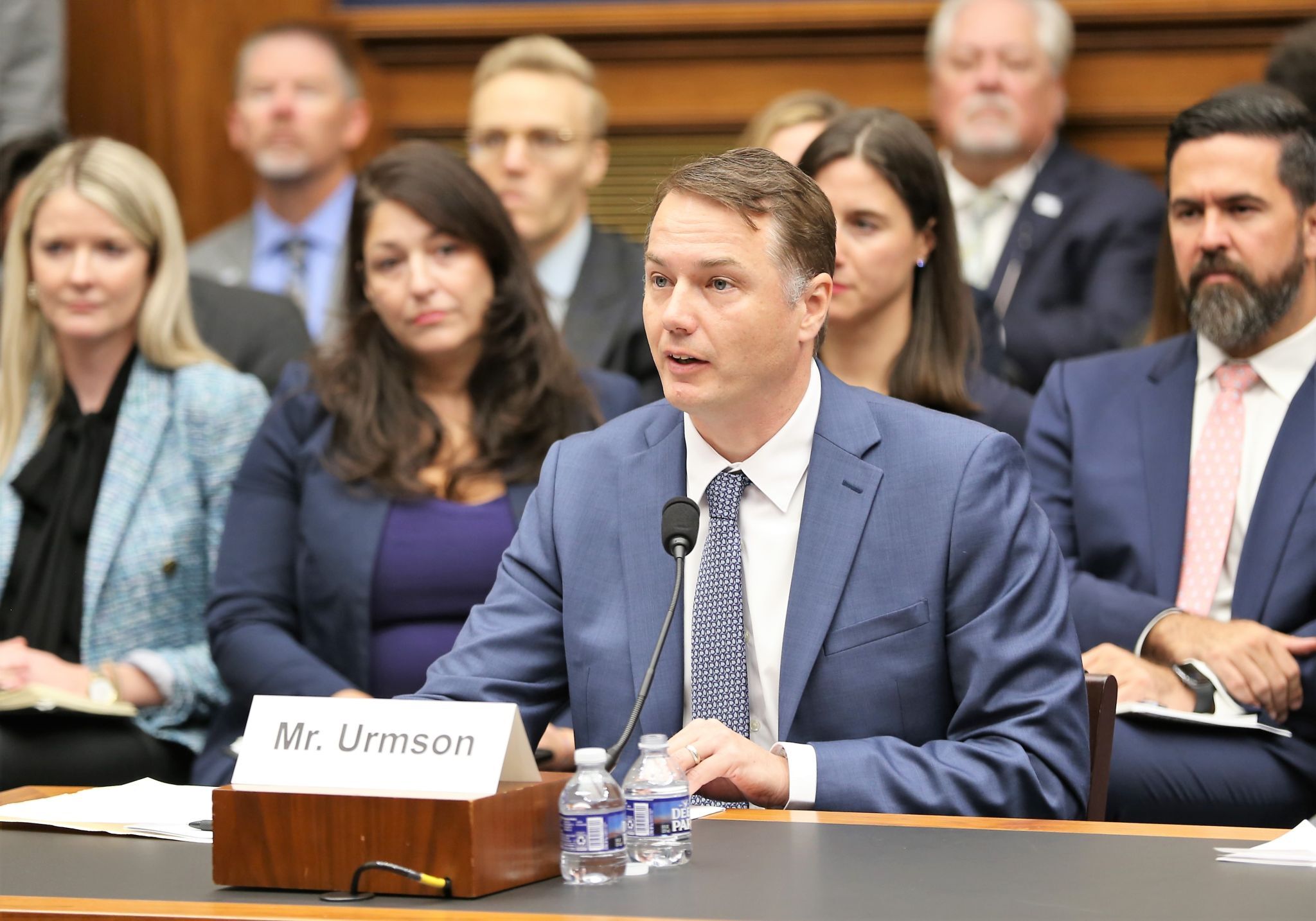Maintaining our lead: how smart policy can support self-driving innovation
November 09, 2023 | 3 min. read

At Aurora, we see a future where autonomous trucks make transportation safer, grow our economy, and benefit businesses and consumers alike. But, as global competitors seek to monopolize self-driving technology, these benefits are not guaranteed.
While today’s federal regulations allow for driverless operations, enabling the autonomous trucking industry to maintain our lead internationally requires a renewed investment in smart, thoughtful public policy that accelerates innovation. Aurora CEO Chris Urmson recently testified before Congress as the autonomous trucking industry’s foremost expert, where he highlighted our thorough approach to safety and how legislative leaders can help maintain the United States’ competitive edge in this technology.
As Chris shared, straightforward, common-sense policy updates can modernize our transportation ecosystem while delivering strong safety benefits.
For example, Aurora submitted a request to FMCSA to allow autonomous trucks to use flashing warning beacons in lieu of traditional warning triangles to alert other drivers when the truck is pulled over to the side of the road. An associated study showed that bright, amber lights, like those currently in use by construction and public safety vehicles, provide an equivalent, if not greater, level of safety compared to the small road triangles used for trucks today. Granting this request would both benefit road safety and help enable the U.S. autonomous trucking industry to keep pace with international competitors.
Hear directly from Chris as he shared his expertise with the House of Representatives Transportation & Infrastructure Committee:
International Competition: We’re leading today, but that lead is fragile
The modern American autonomous vehicle industry was kicked into high gear by the DARPA Grand Challenges in the early 2000’s, but the global lead built during this period is waning. Competitors from China, the United Kingdom, and elsewhere have heavily invested in self-driving technologies, and, as Chris said: today, our lead is fragile.
In order to keep the United States on top, the American autonomous vehicle industry would benefit from a strong show of support from the federal government, including coordination between Congress, FMCSA, and NHTSA to prioritize safety and performance-based regulations.
Workforce: Opportunities for new, high-value jobs
At Aurora, we’re not just building a business, we’re building an industry. That means preparing today’s workforce for tomorrow’s careers, and we’ve invested in a number of programs to train the team members we’ll need to expand our operations. This includes work with Pittsburgh Technical College in Pennsylvania and Gallatin College in Montana, and we’re in the process of building a career training program with Dallas College in Texas as well.
New roles in the autonomous vehicle industry include terminal operators, fleet support technicians, command center specialists, fleet dispatch specialists, autonomous vehicle operations specialists, sensor engineers, and more.
The U.S. Department of Commerce and U.S. Economic Development Administration recently designated Montana’s Headwaters Technology Hub as a Regional Technology and Innovation Hub. This is a meaningful show of support for autonomous vehicle technology and the workforce that supports it, and could yield millions of dollars in funding for research and workforce development in the coming years.
Safety: Paramount to how we develop autonomous vehicle technology
When it comes to self-driving safety, Aurora has leveraged best practices from other safety-critical industries to build a Safety Case Framework for development and operation of our autonomous vehicles. Our Safety Case is how we show that our technology was developed responsibly and is operated with the safety of everyone on the road at the forefront.
Further, as Chris shared during the congressional hearing, we’ve developed extensive simulations of potential crash scenarios to test our vehicles in tough circumstances without having to experience them in the real world first. Many human drivers may only experience collisions a couple times in their life, but the Aurora Driver has tested its capabilities against thousands of potential collisions in simulation before encountering many of these scenarios in the real world.
Cybersecurity: World-class teams can protect valuable intellectual property
Because our business is built on our proprietary intellectual property, we take cybersecurity incredibly seriously. We’ve put in place a wide range of protections to safeguard our autonomous driving technology against misuse and malicious third parties, and we have a world-class team dedicated to the security of our organization and product infrastructure.
When it comes to regulation, safety and innovation are not mutually exclusive
As policymakers determine how best to support autonomous vehicle safety and innovation, we are committed to continuing open, transparent dialogue about our products and capabilities.
Ultimately, while no restrictions prevent us from launching our driverless product in Texas today, we believe that the United States would benefit from harmonization among state regulations and unifying, supportive federal policy that prioritizes safety and promotes strong product performance.
To learn more about Aurora, our commitment to safety, and how we’re creating new jobs for the future of transportation, visit www.aurora.tech
Delivering the benefits of self-driving technology safely, quickly, and broadly.